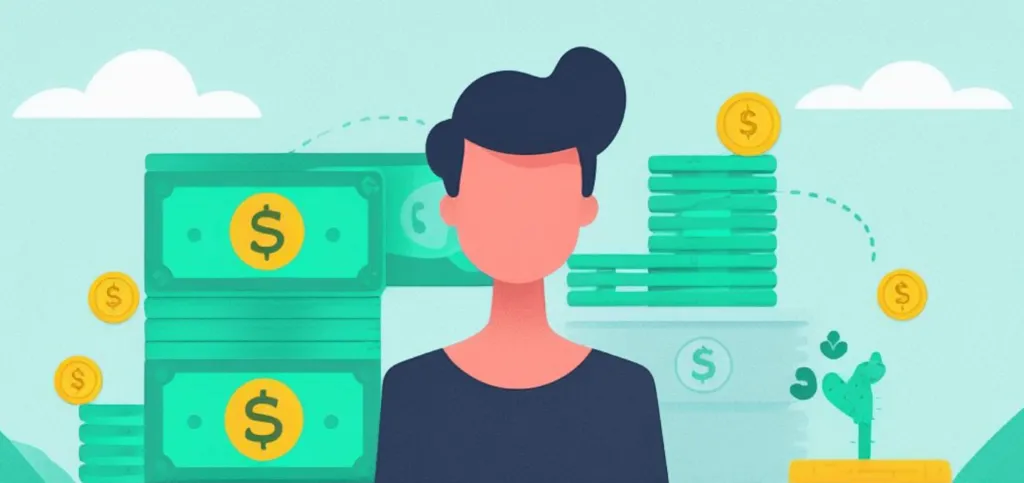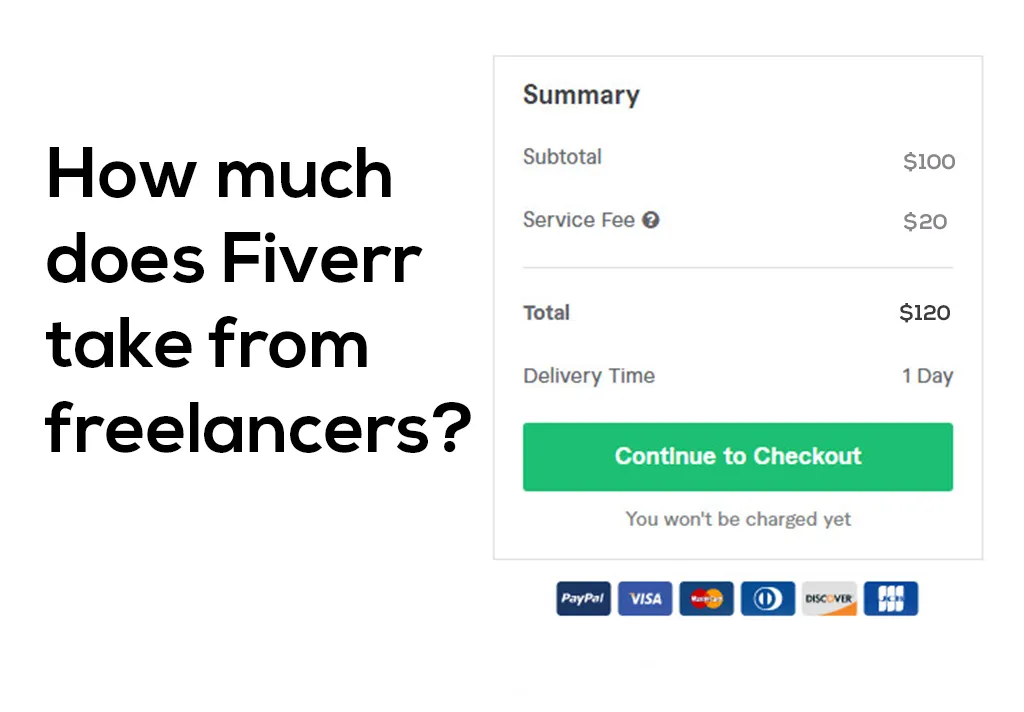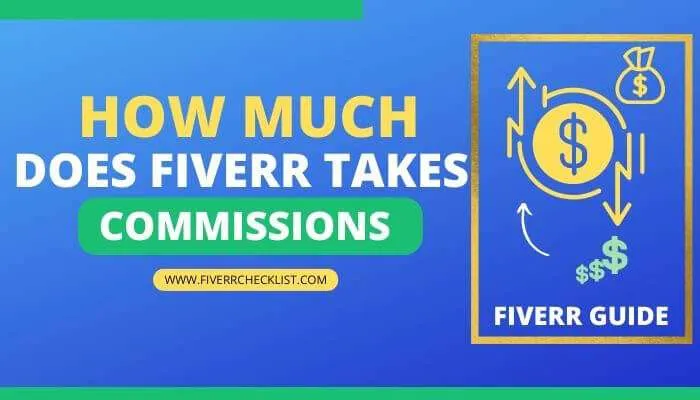Ever wondered how much of your hard-earned cash goes to Fiverr when you earn from freelance gigs? The platform has become a vital resource for freelancers and businesses alike, but it's essential to understand the fee structure before diving in. In this post, we’ll explore what percentage of tips Fiverr takes, so you know just how much of your tips and earnings stay in your pocket and how much goes to Fiverr. Let’s get into it!
Understanding Fiverr’s Fee Structure

Fiverr operates on a specific fee structure that impacts freelancers' earnings. It’s essential to grasp how this model works, especially when considering tips. Here’s a breakdown of the key components of Fiverr’s fee structure:
- Service Fees: Fiverr charges a fee based on the total amount of the order. This fee is typically 20%, which means if you complete a $100 job, Fiverr retains $20.
- Tips: When clients tip you for exceptional service, Fiverr doesn't take a cut from this additional income. Whether you receive a $5 or $50 tip, the entire amount goes directly to your earnings.
- Withdrawal Fees: While tips are untouched, remember that withdrawing your money can incur fees depending on the method you choose (like PayPal or direct deposit).
To illustrate the fees further, here’s a simple table:
| Order Amount | Fiverr's Cut (20%) | Your Earnings |
|---|---|---|
| $50 | $10 | $40 |
| $100 | $20 | $80 |
| $200 | $40 | $160 |
Understanding these details helps freelancers better manage their finances and set competitive prices while knowing what to expect on Fiverr!
Also Read This: How to Get Paid on Fiverr: A Comprehensive Guide
How Tips Work on Fiverr

When it comes to tipping on Fiverr, it’s a little different than what you might be accustomed to in traditional service industries. Fiverr is a platform that connects freelancers with clients, and it's designed to handle transactions transparently. So, understanding how tips are processed here is essential for both buyers and sellers.
Firstly, tips are entirely voluntary on Fiverr. Buyers can choose to add a tip after the completion of an order as a gesture of appreciation for outstanding service. This feature allows buyers to express their satisfaction and can also encourage sellers to go the extra mile. Here’s how it works:
- Completion of Order: After an order is delivered and marked as complete, the buyer can leave a tip on the order page.
- Tip Amount: Buyers can choose any amount they wish to tip, as there are no set limits, which grants them flexibility.
- Secure Transactions: The tip is processed through Fiverr's payment system, ensuring a secure transaction for both parties.
- Visibility: Tips are public on the seller's profile, showcasing the appreciation they’ve received from clients.
Overall, tips on Fiverr enhance the experience for both sellers and buyers. They allow buyers to reward exceptional service while giving sellers a potential way to increase their earnings and maintain high-quality service.
Also Read This: How to Become a Freelancer on Fiverr
Percentage Breakdown of Seller Earnings

Now let’s dive into the nitty-gritty of how much Fiverr takes from seller earnings, because let’s face it—it's important to know what you end up with after your hard work! Fiverr has a clear structure regarding its fees, which impacts how much sellers ultimately keep from their earnings. Here's the breakdown:
| Service | Percentage |
|---|---|
| Base Commission (Fiverr takes on every order) | 20% |
| Tips received from buyers | 100% goes to the seller |
Let’s break that down further:
Base Commission: When a seller completes an order, Fiverr takes a 20% commission off the total amount earned. For instance, if you charge $100 for your service, you will receive $80 after Fiverr’s cut. This percentage is standard across all services on the platform.
Tips: The great news? Any tips clients decide to give you go straight to your pocket! This means that the entire amount specified by the buyer is yours to keep. This model encourages sellers to deliver extraordinary service because it directly impacts potential earnings.
Understanding these percentages is crucial; it allows sellers to price their services effectively while aiming for client satisfaction to maximize tips. So, if you’re a seller on Fiverr, knowing this breakdown will help you strategize and succeed!
Also Read This: How Much Money Can You Make on Fiverr?
Factors Influencing Fiverr’s Commission

When we talk about Fiverr's commission structure, it's crucial to understand that various elements come into play. These factors can significantly influence how much a freelancer ends up taking home after a sale. Let's break them down:
- Service Type: Different services might command varying levels of commission. For example, creative services like graphic design may have different rates compared to technical services like programming.
- Seller Level: Fiverr has a tiered system for sellers, ranging from New Seller to Pro Seller. As freelancers ascend in levels based on performance and reviews, they might negotiate better terms or benefit from promotional features which can indirectly affect their profits.
- Order Value: The total price of the service also affects the commission taken. Fiverr’s fee structure is often a percentage of the total order value. So, higher-priced gigs might seem to attract lower overall commission fees in terms of dollar amounts.
- Promotions and Discounts: If a freelancer offers a discount or runs a promotional deal, the commission might be calculated differently. Thus, the effective takeaway might vary even within the same gig depending on ongoing promotions.
Understanding these nuances helps freelancers set competitive pricing while still ensuring they receive fair compensation for their work.
Also Read This: How to Find Gigs on Fiverr: A Comprehensive Guide
Comparison with Other Freelance Platforms
Fiverr isn’t the only player in the freelance marketplace, so it’s valuable to see how its commission compares to other platforms. Here’s a quick rundown:
| Platform | Commission Rate | Payment Processing Fee |
|---|---|---|
| Fiverr | 20% of total sale | Varies (usually free for gigs above a certain amount) |
| Upwork | 5% - 20% based on earnings | Depends on payment method |
| Freelancer.com | 10% - 20%, depending on project type | Varies based on payment method |
| Guru | 5% - 9% based on membership level | Free payment processing up to certain limits |
As you can see, Fiverr's flat 20% commission might seem steep compared to platforms like Guru, which charges as low as 5%, especially for higher-volume freelancers. However, Fiverr’s simplicity and built-in marketplace can be a massive draw for many new sellers who might appreciate the exposure even if they are paying a higher percentage. Evaluating these differences is key for freelancers looking to choose the best platform for their skills and business model.
Also Read This: What Happens If You Get Scammed on Fiverr?
7. Conclusion
In summary, understanding Fiverr's fee structure is crucial for anyone looking to utilize the platform, whether as a freelancer or a buyer. Fiverr takes a commission of 20% from the total earnings of freelancers, which can be a shocker for newcomers. However, this commission also plays a significant role in maintaining the platform, offering essential services such as customer support and marketing. So, while it may seem steep, it does contribute to the overall experience.
On the buyer's side, Fiverr adds a service fee ranging from $2 to $3 on orders under $40, depending on the total amount. This fee varies based on the order's value, so it's always good to keep that in mind when budgeting for projects.
As a freelancer, it’s imperative to factor in Fiverr’s commission when setting your prices. For instance, if you want to take home $100 after Fiverr's fees, your service fee should be set to approximately $125. This small shift can help cover the costs incurred by using the platform.
In the end, whether you’re a buyer or a seller, being aware of these fees can lead to better budgeting and clear expectations. Transparency in these transactions fosters trust, which is essential in today's gig economy. Always remember to evaluate if Fiverr's platform aligns with your objectives and financial expectations. Overall, while Fiverr does take a significant cut, the exposure and conveniences they provide can be worth the investment.
8. FAQs
Got questions? You're not alone! Here are some frequently asked questions about Fiverr’s fee structure that can help clarify any confusion.
- What percentage does Fiverr take from sellers?
Fiverr takes a 20% commission from every sale. So, for a $100 gig, you would keep $80. - Are there any additional fees for buyers?
Yes, buyers are charged a service fee that varies based on the size of the order. For orders over $40, the fee is 5% of the total cost. - Can sellers set their own prices?
Absolutely! Sellers have the freedom to set their prices, but they should consider Fiverr's commission when determining how much they wish to earn. - Does Fiverr ever change its fees?
Fiverr can adjust its fee structure, so it’s always good to keep an eye on any policy updates. - Are there any alternatives to Fiverr?
Yes! Platforms like Upwork, Freelancer, and PeoplePerHour offer similar services, each with its own fee structures. It's always worth exploring options.
Feeling more enlightened? Typically, Fiverr's fees can seem daunting, but once you embrace the platform's potential, it can be an excellent way to launch or expand your freelance career!



